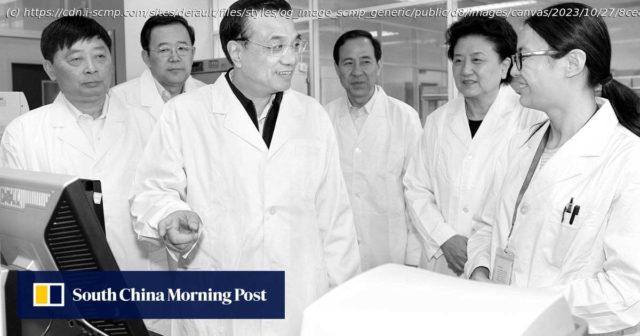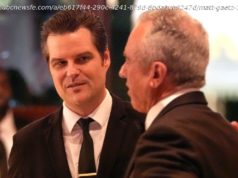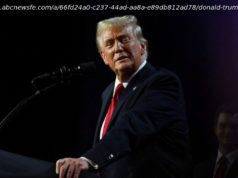Li Keqiang, who pushed for the private economy, foreign investment and simplified government procedures during his 10 years as premier, died in Shanghai on Friday morning at the age of 68.
Former premier Li Keqiang has been fondly remembered for his economic tactics, known as “Likonomics” that featured efforts on deleveraging, structural reform and restrained stimulus, at a time when China’s economy has yet to secure a solid post-pandemic recovery.
Li died in Shanghai on Friday morning at the age of 68, with state broadcaster CCTV reporting that he suffered a heart attack a day earlier.
Serving as premier from 2013-23, Li faced far more challenges than his predecessors, including a hostile external environment, resistance from interest groups and complex social-political conditions.
Approachable and pragmatic, Li steered the world’s second-largest economy through a difficult period during his decade as premier, making a tireless push for market-oriented reforms, simplified government procedures and a better business environment for private and foreign companies.
“Li has been committed to market-oriented reforms,” said Zhu Tian, a professor of economics at the China Europe International Business School (CEIBS). “He was a charismatic truth-teller, and a popular premier in China.”
As China’s first premier with a bachelor’s degree in law and also a PhD in economics, both from the prestigious Peking University, Li took on the mission to correct the economic imbalance caused by the implementation of a 4 trillion yuan (US$572 billion) stimulus package in 2008, which was used by his predecessor in an attempt to manage the global financial crisis.
The year Li was sworn in as premier, Beijing approved the historic reform document, which vowed to let the market play a decisive role in the allocation of resources and also detailed a reform road map.
The economy continued to expand, despite a slower pace of an average of between 5 and 6 per cent in the past decade, to approach the threshold of a high-income country.
Speaking at the National People’s Congress in March 2022, he vowed that “China’s opening-up policy would not change, just as the course of the Yangtze and Yellow rivers will not be reversed”.
Tao Jingzhou, a renowned lawyer and university classmate, said on Friday that Li’s support for economic reforms and opening-up came from the bottom of his heart.
Some of his policies, though, were shelved as President Xi Jinping consolidated his grip over the Communist Party and the government.
The world’s second-largest economy has been tilting more towards security since the start of Xi’s second term in 2018, as the president prioritised anti-corruption, environmental protection, national security and coronavirus controls, often over economic development.
Beijing also had to deal with the trade war launched by the Trump administration, which pushed China to adopt a so-called dual circulation strategy of relying more on the domestic market and technology for growth amid the US curbs.
Home
United States
USA — mix Li Keqiang: China’s charismatic, truth-telling former premier mourned, as deep reforms and...






